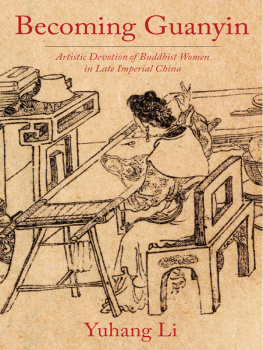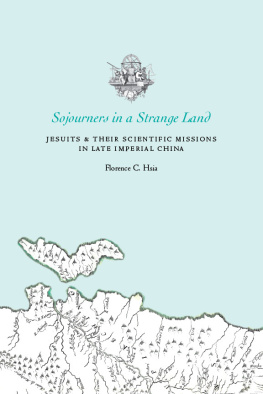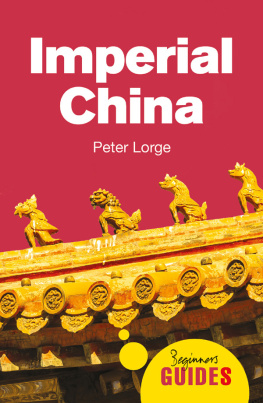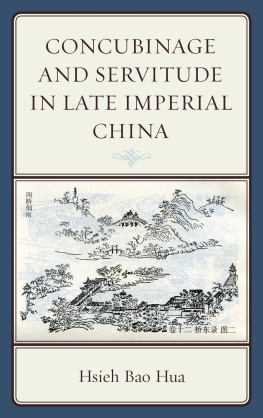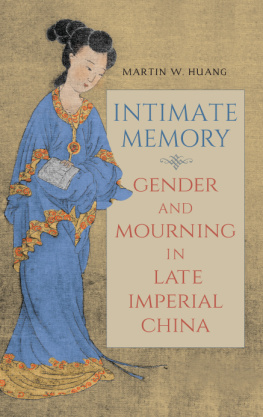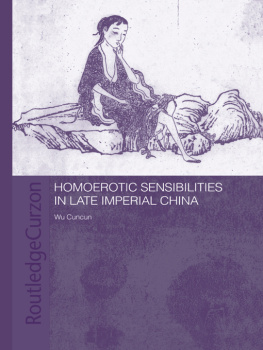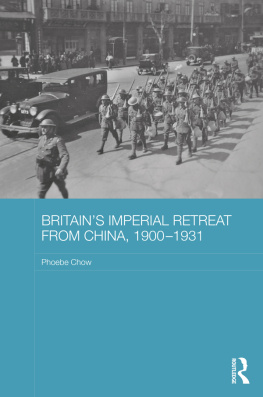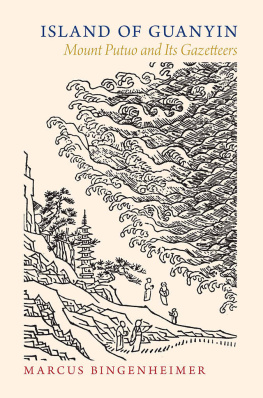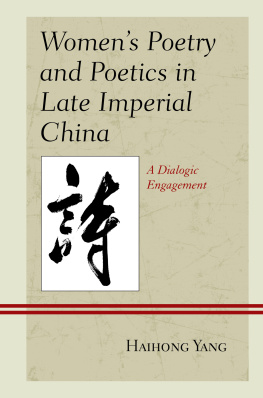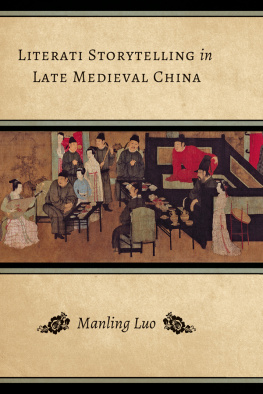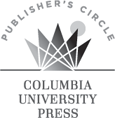Table of Contents
BECOMING GUANYIN
Premodern East Asia: New Horizons
Premodern East Asia: New Horizons
Sun Joo Kim, Dorothy Ko, and Haruo Shirane, series editors
This series is dedicated to books that focus on humanistic studies of East Asia before the mid-nineteenth century in fields including literature and cultural and social history, as well as studies of science and technology, the environment, visual cultures, performance, material culture, and gender. The series particularly welcomes works with field-changing and paradigm-shifting potential that adopt interdisciplinary and innovative approaches. Contributors to the series share the premise that creativity in method and rigor in research are preconditions for producing new knowledge that transcends modern disciplinary confines and the framework of the nation-state. In highlighting the complexity and dynamism of premodern societies, these books illuminate the relevance of East Asia to the contemporary world.
Becoming Guanyin
Artistic Devotion of Buddhist Women
in Late Imperial China
YUHANG LI
Columbia University Press
New York
Columbia University Press gratefully acknowledges the generous support for this book provided by Publishers Circle member Chn-fang Y.
Columbia University Press
Publishers Since 1893
New York Chichester, West Sussex
cup.columbia.edu
Copyright 2020 Columbia University Press
All rights reserved
E-ISBN 978-0-231-54873-1
Support for this research was provided by the University of WisconsinMadison Office of the Vice Chancellor for Research and Graduate Education with funding from the Wisconsin Alumni Research Foundation.
Publication of this book has been aided by a grant from the Millard Meiss Publication Fund of CAA.
This publication was made possible in part by a grant from the James P. Geiss and Margaret Y. Hsu Foundation.
Library of Congress Cataloging-in-Publication Data
Names: Li, Yuhang, author.
Title: Becoming Guanyin / Yuhang Li.
Description: First edition. | New York : Columbia University Press, 2019.
Identifiers: LCCN 2019021927 | ISBN 9780231190121 (cloth) | ISBN 9780231548731 (e-book)
Subjects: LCSH: Buddhist women. | Women in Buddhism. | Avalokitesvara (Buddhist deity)
Classification: LCC BQ4570.W6 L5 2019 | DDC 294.3/4440820951dc23
LC record available at https://lccn.loc.gov/2019021927
A Columbia University Press E-book.
CUP would be pleased to hear about your reading experience with this e-book at .
Cover design: Milenda Nan Ok Lee
Cover image: Courtesy of the East Asian Collection.
University of Chicago Library.
Contents
INTRODUCTION
CHAPTER 1
CHAPTER 2
CHAPTER 3
CHAPTER 4
CONCLUSION
T his project would not have come to fruition without the help of many friends, mentors, colleagues, and institutions. It is with great pleasure that I express my indebtedness to some of the many people and institutions who have facilitated the intellectual and practical aspects of this book. Judith T. Zeitlin and Wu Hung, my doctoral advisers, showed confidence in the intellectual value of my work that provided me the strength to finish this book. Additional mentors during the various stages of writing this book, Paul Copp, Dorothy Ko, Chn-fang Y, have constantly inspired me. The seed of this book was planted when I first read Chn-fang Ys book on the feminization of Guanyin in the beginning of my graduate work. Since then, her book and her unfailing support have accompanied me throughout these years. I am extremely fortunate to have intellectual support from Dorothy Ko, whose scholarship in gender and material culture laid the foundation of this book.
Many friends and colleagues have offered suggestions, resources, and conversations. I would like to thank Katherine Alexander, James Benn, Aurelia Campbell, Jill Casid, Lang Chen, Sun-ah Choi, Jessey Choo, Liu Cong, Dai Yun, Jacob Eyferth, Grace Fong, Ping Foong, Anne Feng, Beata Grant, Phyllis Granoff, Anup Grewal, Janet Gyatso, Charles Hallisey, Donald Harper, Marsha Haufler, Jonathan Hay, Xi He, Hua Wei, Shih-shan Susan Huang, Rania Huntington, Fumiko Joo, Xiaofei Kang, Tom Kelly, Yu-chih Lai, Hui-shu Lee, Seung-hye Lee, Wai-yee Li, Nancy Lin, Wei-cheng Lin, Mia Liu, Tina Lu, Lu Yang, Mei Mei, Julia Murray, Michael Naparstek, Susan Naquin, Lynn Narasimhan, Zhange Ni, Bill Nienhauser, Sally M. Promey, Gil Raz, Dagmar Schaefer, Angela Sheng, Koichi Shinohara, Rachel Silberstein, Maya Stiller, Susan Strauber, Catherine Stuer, Xiaosu Sun, Tao Jin, Melissa Vise, Cheng-hua Wang, Eugene Y. Wang, Wang Yudong, Xu Peng, Christina Yu Yu, and Tobias Zrn. In particular, I would like to express my deep gratitude to Wendi L. Adamek, Lynne Gerber, Rivi Handler-Spitz, Ann Waltner, Peggy Wang, and the two anonymous reviewers for Columbia University Press for offering invaluable comments on revising this manuscript. Rivi Handler-Spitz also provided tremendous help with my translation.
As a research associate in the Womens Studies in Religion Program at Harvard Divinity School during the academic year of 2015 to 2016, including an intensive exchange of ideas with Ann Braude and fellow residents Susanna Drake, Lynne Gerber, Spetemmy Lakawa, and Grace Nono, I had a most productive year and was able to write two new chapters of the book. In bringing this project to completion, I received generous support from my home institution, the University of WisconsinMadison. Both the Department of Art History and the Deans Office of the College of Letters and Science provided moral and financial support. Summer research funding from the Graduate School allowed me to complete new field research in China in 2014 and 2015. My residency at the Institute for Research in Humanities in UWMadison in the fall of 2017 enabled me to fine-tune the manuscript. I couldnt have published this book in its current form without generous subventions from the Office of the Vice Chancellor for Research and Graduate Education at UWMadison and the Wisconsin Alumni Research Foundation, the Millard Meiss Publication Fund (College Art Association), and the Geiss Subvention Awards (James P. Geiss Foundation).
Many individuals in China helped me locate certain objects that have not been published and secure image copyrights. Especially deserving of credit are Fang Hui, Li Qingquan, Liu Wentao, Sun Jiangong, Wei Wenbin, Yang Ling, Zhiyan Yang, Yu Hui, Zhang Shuxian, Zhang Zong, Zhu Lishuang, and Zongxing fashi.
I have worked with a patient and efficient team of editors and designers. I am particularly indebted to Su Tong for creating line drawings, Wang Jis timely assistance, Terre Fishers critical editing of the first draft of the manuscript, and my editors at Columbia University Press, Wendy Lochner and Lowell Frye, who not only showed enthusiasm for my project but also guided a novice through the process that turned a manuscript into a book.

